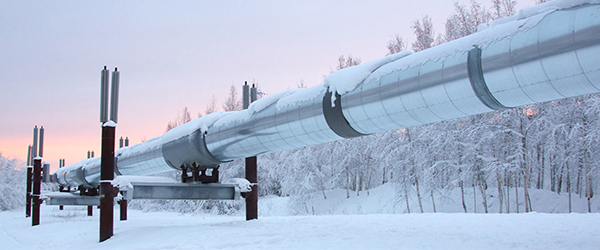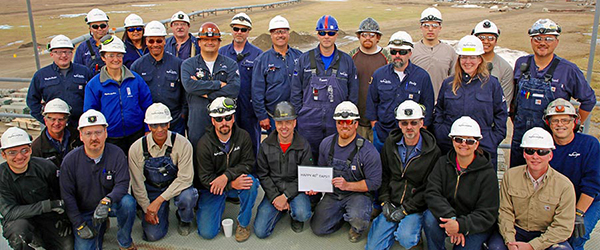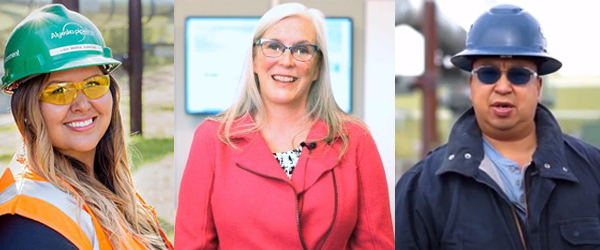2009: A family conversation about the Vessel of Opportunity program
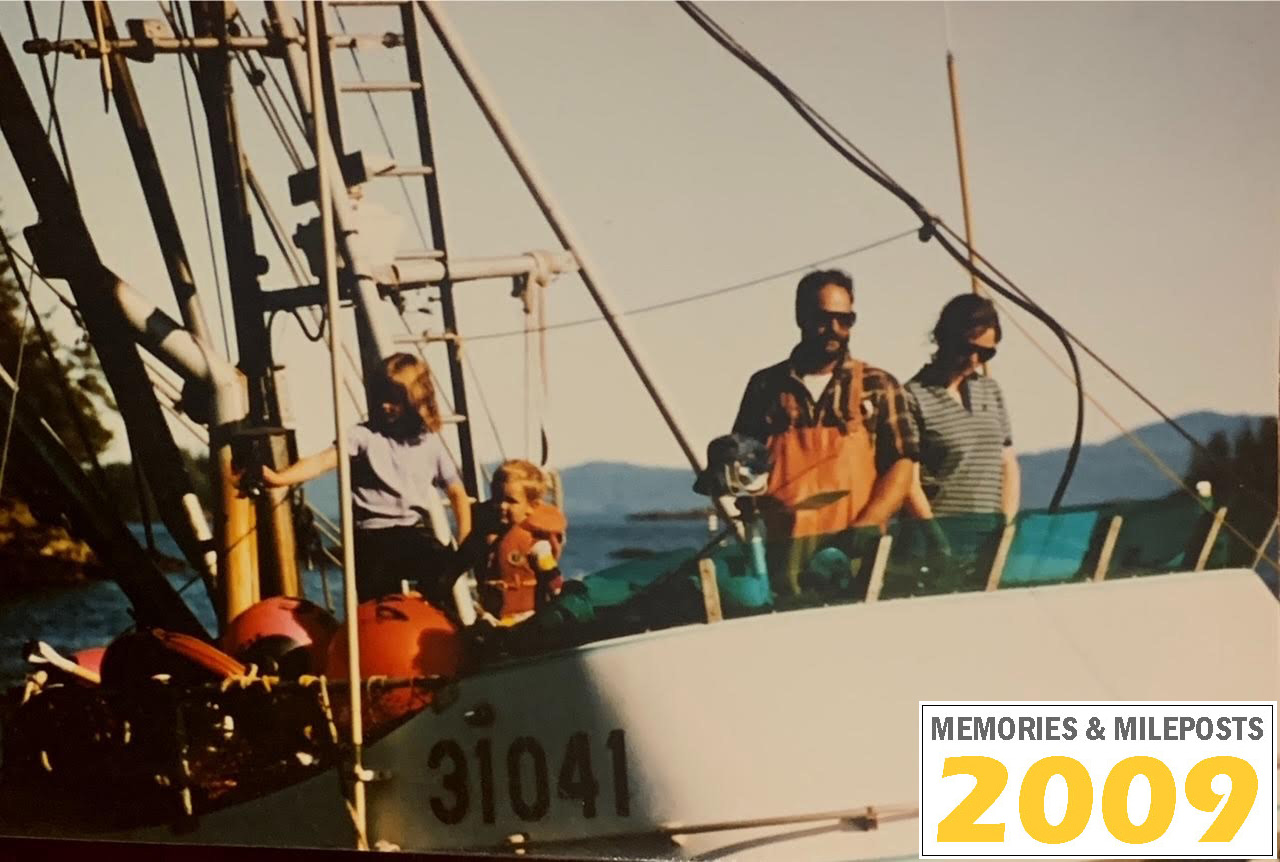 20 years after fishing vessels responded to the Exxon Valdez oil spill, the fishing vessel program was entering its third decade; it continues to thrive today.
20 years after fishing vessels responded to the Exxon Valdez oil spill, the fishing vessel program was entering its third decade; it continues to thrive today.
For the Corazza family, fishing is the family business. Rich, the captain of the F/V Malamute Kid, has fished in the waters of Southcentral Alaska for decades. His daughter Megan followed suit – buying a seiner when she was just twenty years old – and is now the captain of the F/V Centurion. Both have had their boats and crews in the SERVS Fishing Vessel Program for more than twenty years. Megan’s brother Rick is also a captain in the program. Rich was on scene responding in ‘89 – so was Megan, but more on that later – and signed up for the program when it began shortly thereafter.
Today, more than 350 fishing boats and other vessels participate in the program. Each year, SERVS personnel conduct training in Kodiak, Seward, Homer, Whittier, Cordova and Valdez, supported by training partner organizations like Prince William Sound College, the United States Coast Guard, and others. More than 1500 crewmembers are trained on oil spill response equipment and tactics; they are a critical piece of Alyeska’s emergency preparedness.
Rich and Megan recently sat down and reflected on their time in the program, as captains and as family.
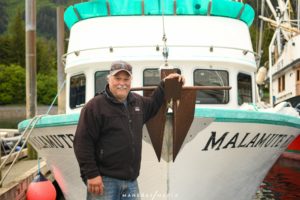
Why did you join the fishing vessel program?
Rich: “In the oil spill, they closed the whole sound down. We never wanted to see that again. So when the program came up, it was important to the fishermen to never let [an oil spill] stop us from fishing, or hurt the resource.”
Megan: “When we stopped fishing in ‘89, I was 10 years old and on dad’s boat. I actually went out and was part of the clean-up. I was out on the beach. I have these very vivid memories of the whole spill. I would watch crews come in and clean the beaches and I could turn over the rocks and see how much oil was underneath. And so, I joined the program right away when I bought my operation.”
Have you seen changes over the years in the program?
Rich: “I think the biggest thing that changed over the years was the equipment. In the [Exxon Valdez] oil spill, we had nothing. We all got out there, but we couldn’t do anything. The equipment got great and it’s getting better every year. I feel like we can control [the oil] if it happens again.”
Megan: “I’ve noticed over two decades that, within the fleet, we are all trained in the [Incident Command System] and in clear communications. I see it play out on the fishing grounds, everyone’s talking in a really organized way. Even going out and doing a search and rescue operation, we’ll utilize a lot of the tactics that we learn in fishing vessel training.”
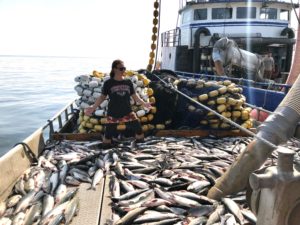
What does it mean to you to share the experience with family?
Megan: “Well, you know my brother Rick is also on contract. And so we have three boats and sometimes in two different ports; we’re always chitchatting about our experiences. We definitely fish as a family and then we’re all talking about training as a family.”
As you think about your years in the program, do any moments stand out?
Rich: “Without a doubt, my favorite moment was the Windy Bay spill.”
In 2001, The Windy Bay, a fishing tender, hit a rock at the mouth of Unakwik Inlet in Northern Prince William Sound and sank with 35,000 gallons of fuel on board. Though not a TAPS-related spill, SERVS was activated by the USCG to respond and many fishing vessels in the program mobilized onto the scene.
Rich: “We all called up, and we actually had some equipment and we did something. We were able to help the fishing fleet.”
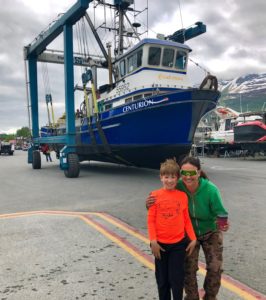
Megan: “That experience was worth five trainings for sure, because you saw how everything played out in real life. But my favorite thing was to be a part of wildlife training. That training was so valuable. I’ve done it in two ports, Homer and Seward. I learned how to safely haze animals and how to handle ducks. Take the temperature of ducks – that was an entirely new experience for me.”
Anything other thoughts about the program?
Rich: “I just hope it never happens again. It took a toll on people; they don’t teach you in class the stress that’s involved. I hope [the program] continues on, and I hope it keeps us safe, and oil out of the water.”
Megan: “It has given us, as a fleet, a way to clean up spills that have been caused by our commercial fishing fleet, from the tenders or boats. It has given us a little power and ownership where we can clean up our own messes.”
READ MORE 45TH ANNIVERSARY PROVEN PARTNERSHIPS FEATURES:
1998: ANUA renewal — coming soon
